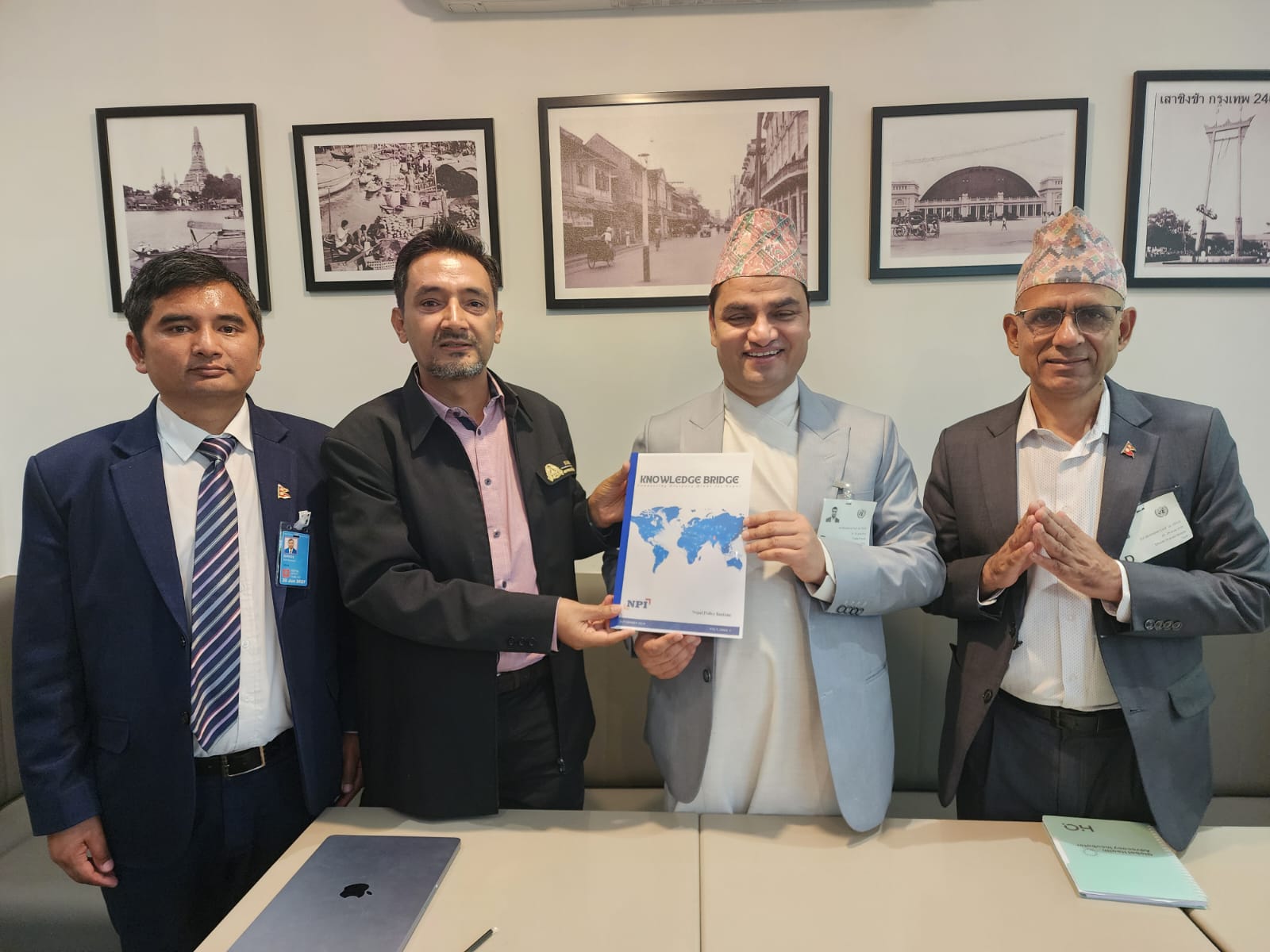

 22.14°C काठमाडौं
22.14°C काठमाडौं

Kathmandu: During a visit to Bangkok for the United Nations Regional Ministerial Meeting on June 26, Pradip Paudel, Minister of Health and Population of Nepal, and Dr. Khagendra Raj Dhakal, Chair of the Nepal Policy Institute (NPI), held a meeting at Bow Hotel. During the meeting, they shared an insightful discussion on Nepal’s evolving public health policies and strategic reform priorities.
Moreover, the meeting focused on Nepal’s Universal Health Coverage (UHC) goals, with particular attention to the expansion of the National Health Insurance Program (NHIP). Minister Paudel shared his government’s efforts to increase health insurance coverage and reaffirmed his commitment to enhancing the program’s reach to underserved populations.
Dr. Dhakal appreciated the Minister’s forward-looking leadership and presented key learnings from Thailand’s public health system, especially the well-known ’30 Baht Scheme’ which has delivered affordable, equitable, and efficient care across Thailand through tax-based funding.
During the discussion, Dr. Dhakal provided background on Thailand’s highly regarded ’30 Baht Scheme’ to illustrate its potential relevance for Nepal. Officially introduced in 2001 as part of Thailand’s Universal Coverage Scheme (UCS), the program initially allowed citizens to access nearly all essential health services at government facilities for just 30 Baht per visit (approximately 1 USD). Over time, the co-payment was waived, and the scheme became fully tax-funded.
The scheme offers comprehensive coverage—including outpatient, inpatient, maternal and child health, chronic disease management, and essential medicines—at public hospitals and health centers across Thailand. Managed by the National Health Security Office (NHSO), it uses a capitation-based funding model and a primary care gatekeeping system to ensure efficiency and cost control. As a result, Thailand achieved near-universal health coverage and drastically reduced out-of-pocket spending, while maintaining relatively low health expenditure as a percentage of GDP.
When the Minister inquired about the population coverage under the 30 Baht Scheme, Dr. Dhakal explained that it covers approximately 74% of Thailand’s population through the Universal Coverage Scheme (UCS), and that when combined with other schemes, Thailand has achieved over 99% health coverage, through a coordinated system of three public health insurance schemes: the Universal Coverage Scheme (UCS), the Civil Servant Medical Benefit Scheme (CSMBS)for government employees, and the Social Security Scheme (SSS)for private sector workers. He emphasized that the 30 Baht Scheme represents a model of strategic, equitable, and sustainable health financing that Nepal can adapt, especially in improving NHIP design and reach.